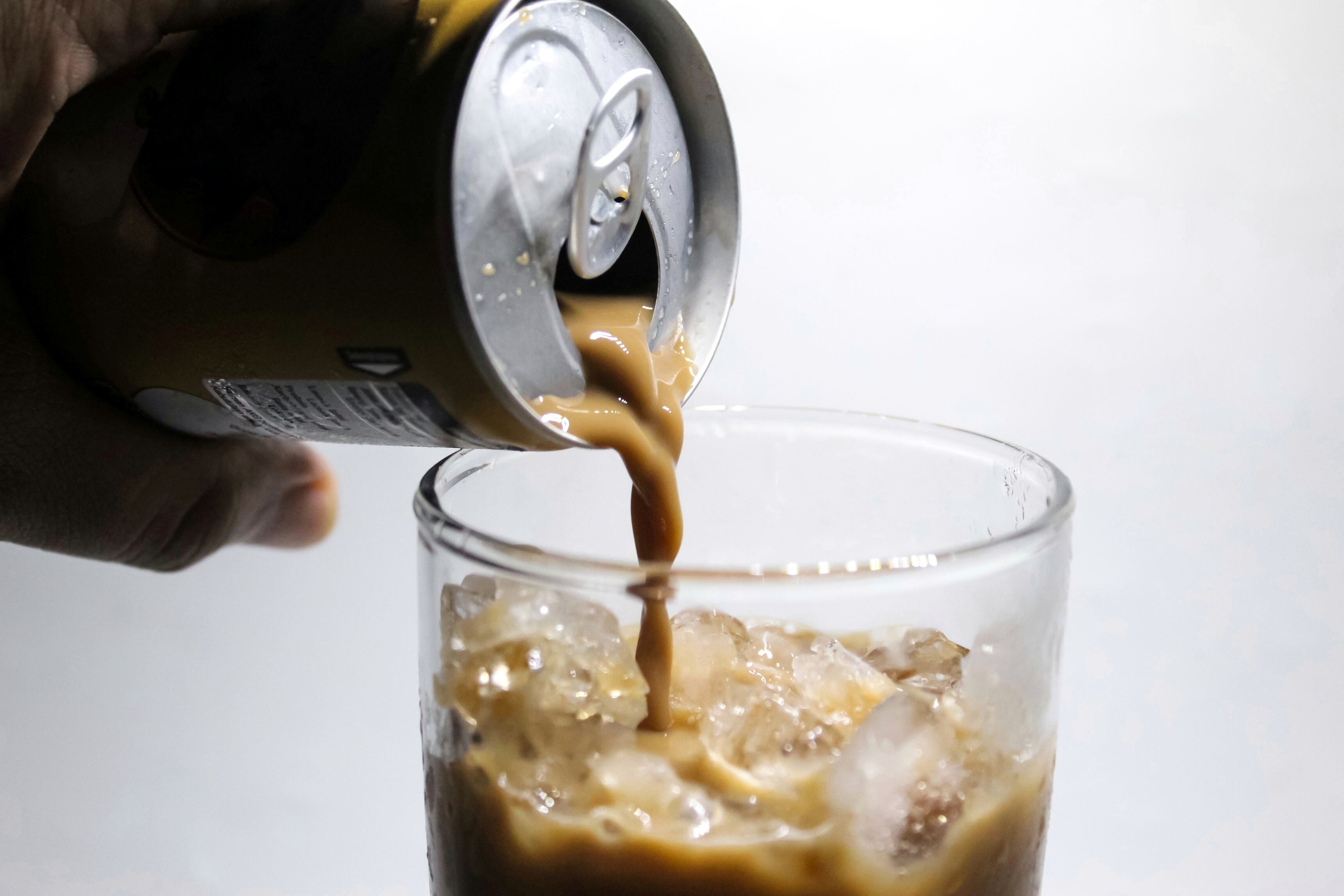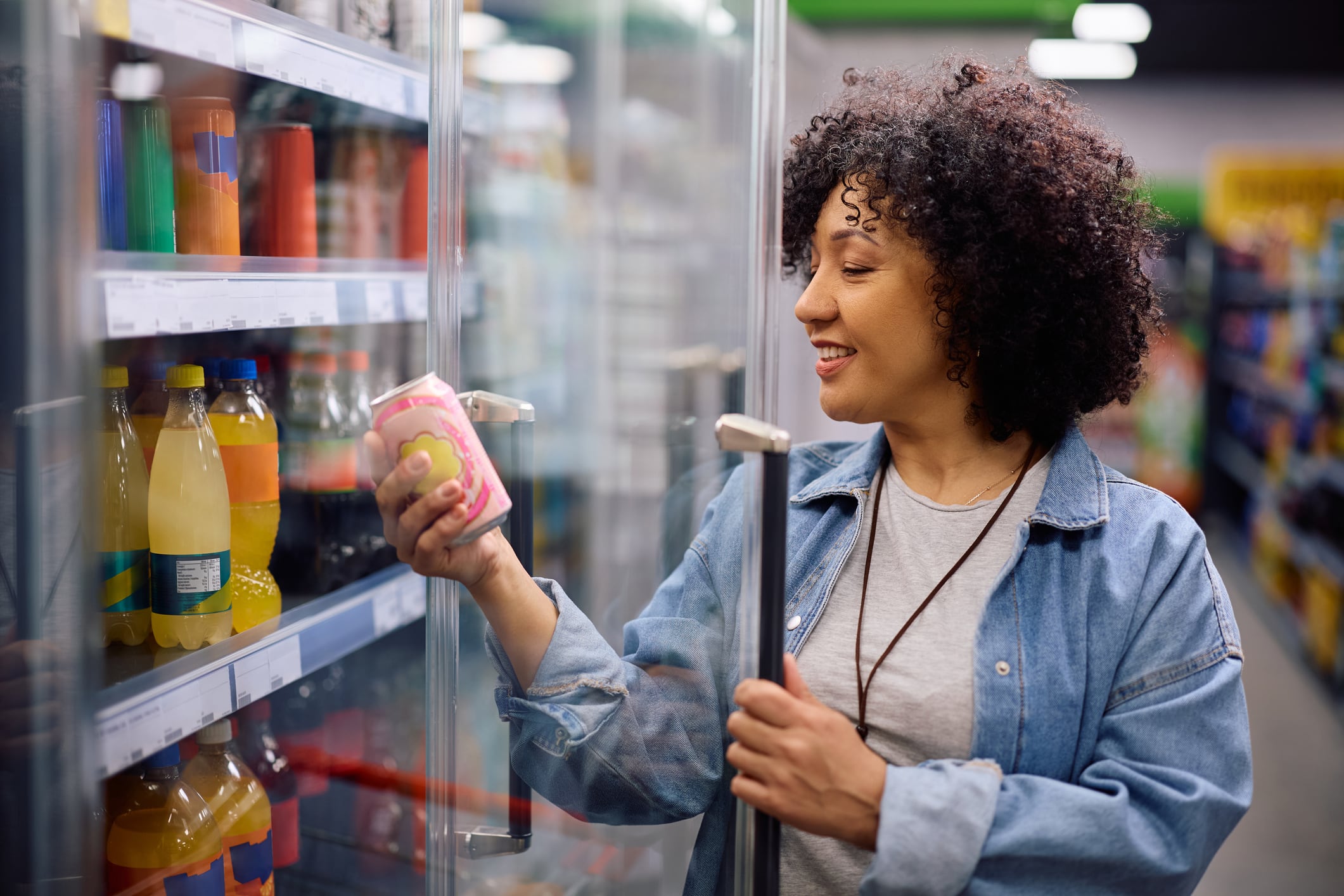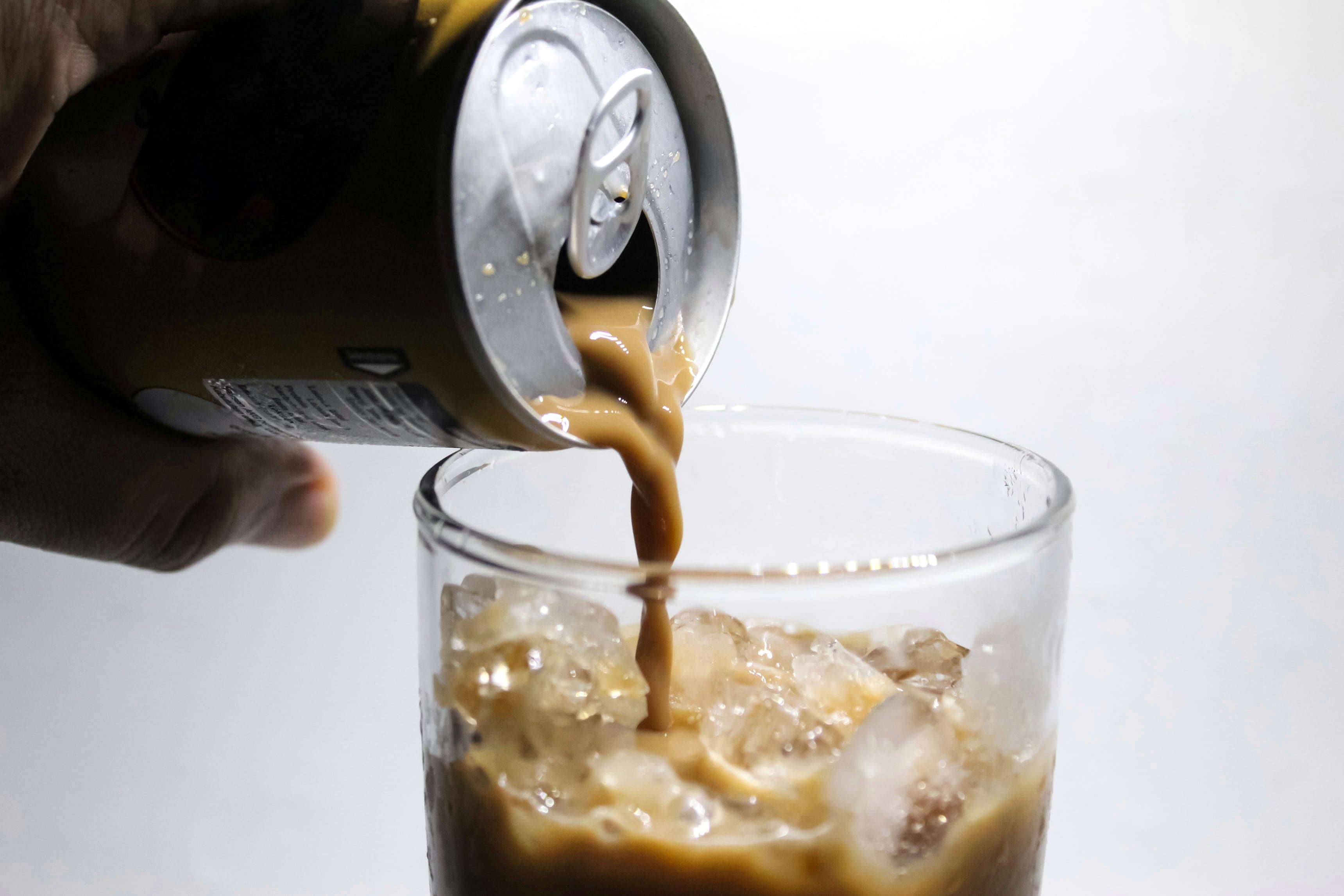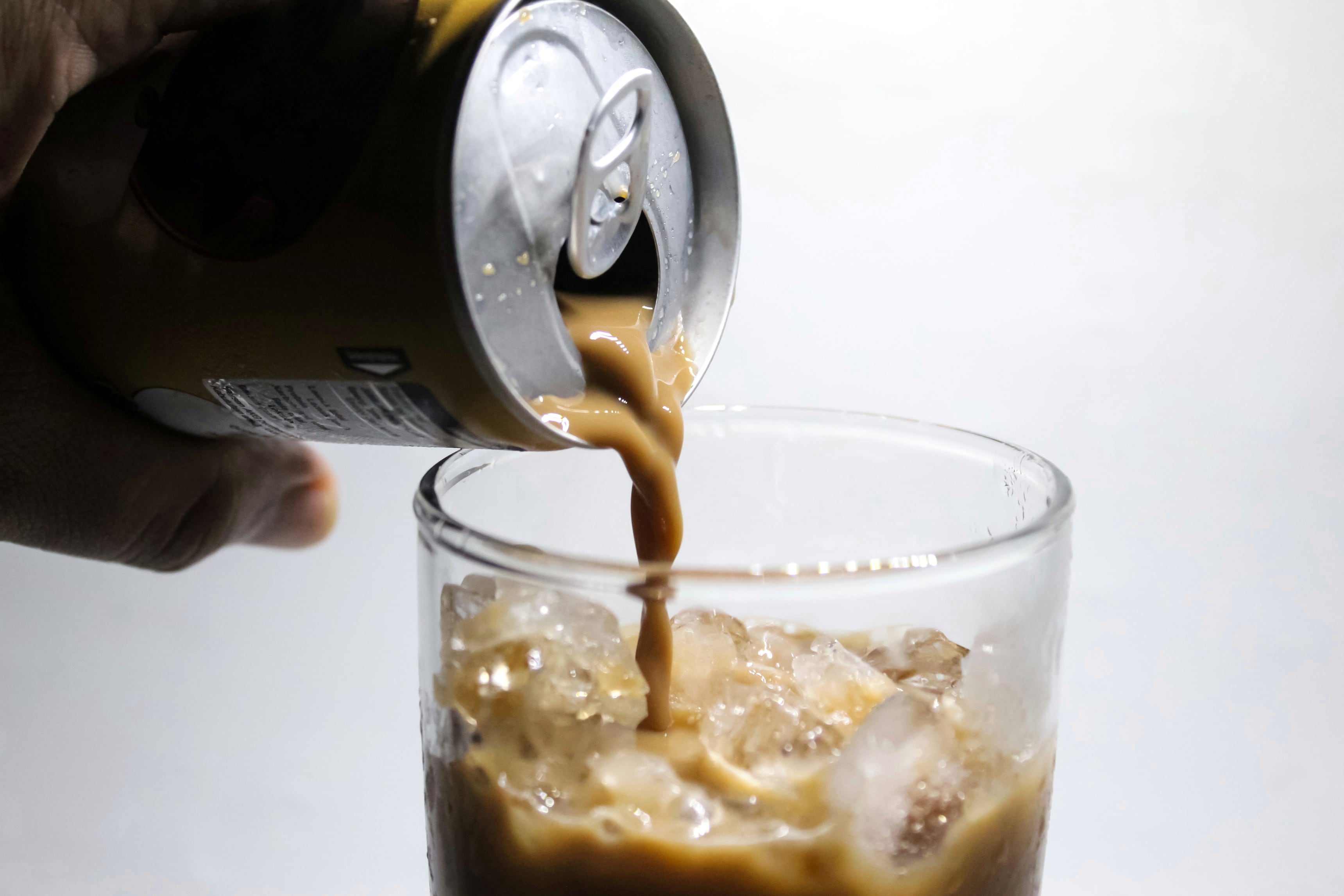The Soft Drinks Levy (or sugar tax as it’s more colloquially referred to) was originally announced in George Osborne’s 2016 Budget and introduced in 2018.
It sets a tax on sugary pre-packaged beverages, with drinks containing at least 5g of sugar per 100ml subjected to charges and a higher tax applied to those with 8g or more.
A quick recap - and what’s been confirmed
Earlier this year, the UK Government announced it would be consulting on whether the rules needed to be expanded to include sugary milk-based drinks and plant-based alternatives.
Food Manufacture spoke to both Unconform Coffee and Skinny Food Co (who sell RTD cold brews) following this announcement, who agreed such a move would be a step in the right direction.
The Government has now confirmed that pre-packaged milk and milk-alternatives with added sugar, such as supermarket milkshakes, flavoured milks, sweetened yoghurt drinks, and RTD coffees, will be captured in the new rules. Although a ‘lactose allowance’ will be introduced to account for the naturally occurring sugars in milk. The only exceptions to this will be lactose or galactose added as an ingredient, hydrolysed lactose, or lactose present in whey powder.
The consultation also explored whether the sugar threshold should be lowered, meaning more drinks would be brought into scope.
Julian Atkins, managing director for Global Brands – which owns Hooch – had expressed concerns to Food Manufacture over a reduction to 4g per 100ml and said he hoped any changes would align with rules already set out in HFSS regulations.
So Atkins and others can breathe a sigh of relief, as news came today that the threshold would be reduced to 4.5g of total sugars per 100ml not 4g.
Industry will be feeling ‘exhausted’
The Food and Drink Federation said it’s pleased with the outcome, stating that the Government has listened.
“The new proposals take into account the costly and technically complex work that companies have to do to bring healthier products to market, and go some way to protecting the investment companies are making to help people follow healthier diets,” an FDF spokesperson commented.
However, James Watson, UK partner at global operations strategy and transformation consultancy, Argon & Co, said he wouldn’t be surprised if manufacturers are feeling whiplashed from a constant flurry of change.
“The levy itself is small, but it’s an example of another intervention where the expected benefit versus the effort and complexity forced on manufacturers to respond, seem disconnected. Manufacturers aren’t necessarily reacting to the pennies at stake, they’re exhausted from handling a steady stream of fragmented interventions,” Watson said.
“At this point, it’s the cumulative burden that threatens investment, not this single policy – a thousand cuts wearing businesses down.
“Even minor tweaks force manufacturers into costly reformulation, relabelling and compliance changes. Milkshakes represent a tiny fraction of total sugar consumption. If the aim is healthier diets, this feels like fettling rather than grasping the nettle – another missed opportunity to give clarity on a long-term nutrition and reformulation strategy with one-off tweaks that send mixed signals.”
“The UK food & drink industry is not opposed to measures that improve public health, but this move highlights the absence of a coherent food and health strategy. Manufacturers are being penalised without any roadmap of what ‘good’ looks like, nor where funds raised will be directed.”
Citing the damning UPF report in The Lancet, Watson said the policy game is shifting from one-off taxes to a wider food system challenge.
“If processing levels are becoming the next frontier for nutrition regulation, manufacturers will need far more clarity, innovation funding and lead-time than one-off levies can provide,” he said.
“Any additional operational cost – however small – usually ends up in consumer prices. With food inflation still high, policymakers should be extremely cautious about measures that add friction or force unnecessary reformulation.”
He continued: “Constant recipe changes also make UK products harder to keep compliant across export markets. Every reformulation requires manufacturers to reassess additives, labelling and certification. These small domestic policy shifts quietly erode the UK’s competitiveness overseas.
“Investment requires a stable, multi-year regulatory horizon. Right now, manufacturers are planning around uncertainty rather than planning for growth. The launch of the Food Inflation Gateway [a move by Defra which will see new government regulations assessed for their impact on food businesses and food prices] is a welcome signal of intent to consult and engage business on regulation and prevent future destabilising effects.”
Nick Garside, VAT partner at Menzies LLP agreed the move is likely to hurt a lot of businesses.
“The milkshake tax is another blow to businesses already drowning in complex taxes and soaring fixed costs,” he said.
“If this isn’t balanced with meaningful business rates reform for hospitality, leisure, and retail, it’s a clear net negative for growth. While the levy targets only packaged drinks, not fresh café-made shakes, it still shakes up a struggling sector, and piles on administrative burden and cost at a time when margins are already diluted and consumer demand dwindles.
“If the Government is serious about boosting the economy, it should be easing financial pressures on businesses and consumers, not reaching for revenue at the first opportunity.
“Our advice for businesses is to treat this as more than a cost-exercise. Use the lead-in period to review product profitability, sharpen pricing strategies, and assess whether recipe reformulation or alternative product development could better support business goals. Those who prepare early will be in a far stronger position when the levy lands.”
Challenger brands to take hit
Phil Peters, director of supply chain services at FMCG consultancy firm YF, said the expansion of the sugar tax will ultimately end up harming the challenger brands.
“RTD coffees, high-protein shakes and indulgent flavoured milks - this space only exists because challengers created it,” he wrote on Linked In.
“For some of our clients, even a few pence per bottle becomes a real margin conversation - especially when they’re dealing with Extended Producer Responsibility at the same time...!”
Peters also raised issues with the rules not extending to ‘open cup’ milkshakes prepared in cafés, bars, etc., saying it would pave the way for a “deeply uneven playing field”.
However, as he noted that, some will turn this into a competitive advantage. For Peters, winning brands will act quickly on reformulation, model the COGS and margin implications well ahead of retailer conversations, reposition SKUs around ‘no added sugar’, ‘high protein’ or functional benefits, and use supply chain agility to get ahead rather than react.
Health experts and activists offer praise but not without reservations
Health charities and associations were unsurprisingly quick to praise the sugar tax expansion.
Katharine Jenner, executive director at the Obesity Health Alliance, said the end of the sugary milkshake exemption is “long overdue” and described the lower threshold tweak as a “sensible move” that will make a positive impact on children’s health – especially dental.
“We now urge the Government to press on with implementing the rest of its NHS 10-year plan for health,” Jenner added.
“Mandatory reporting of healthy food sales with clear targets, improved school food standards, a ban on energy drinks for children, and tighter junk-food advertising rules based on the latest Nutrient Profile Model, alongside a stronger levy, would help rebuild a food environment that supports children’s health rather than undermines it.”
Bite Back Youth activist, Dev, added: “This is great news from the Government, especially because it finally tackles sugary milkshakes and other milk-based drinks. The amount of sugar in these products has been completely outrageous, and young people like me have been saying it for years.
“We’re targeted with these drinks everywhere — in supermarkets, on our streets, and across our socials — so this is a really important step. But it can’t stop here. We need this to be part of a bigger package that also strengthens advertising rules online, on TV and outdoors. Big food companies have been given long lead times before and used them to delay and lobby their way out of action. That can’t happen again. Young people will be watching closely.”
Dr Kawther Hashem, senior lecturer in public health nutrition and head of research and impact at Action on Salt and Sugar, also welcomed the announcement, but added that they “had hoped the Government would go further” with an even lower threshold of 4g.
“It’s unclear why this has now risen to 4.5g. Our own submission showed a median sugar content of 4.2g/100ml in soft drinks. We found nearly three-quarters of drinks already fall below 4g/100ml, so today’s decision misses an opportunity to drive further meaningful reformulation.
“We also called on the Government to create a new upper tier for drinks exceeding 10g of sugar per 100ml, targeting the major brands that have refused to reduce sugar in their high sugar drinks. This would have prevented companies that choose not to reformulate from gaining an unfair advantage over those actively investing in sugar reduction.”
What now?
A technical consultation on the draft legislation will be published next year and changes to legislation introduced in a subsequent Finance Bill, ahead of the legislation taking effect on 1 January 2028.





